Women Empowered
Reena Rampersad – Infusing herself into the cannabis industry
Published
3 years agoon
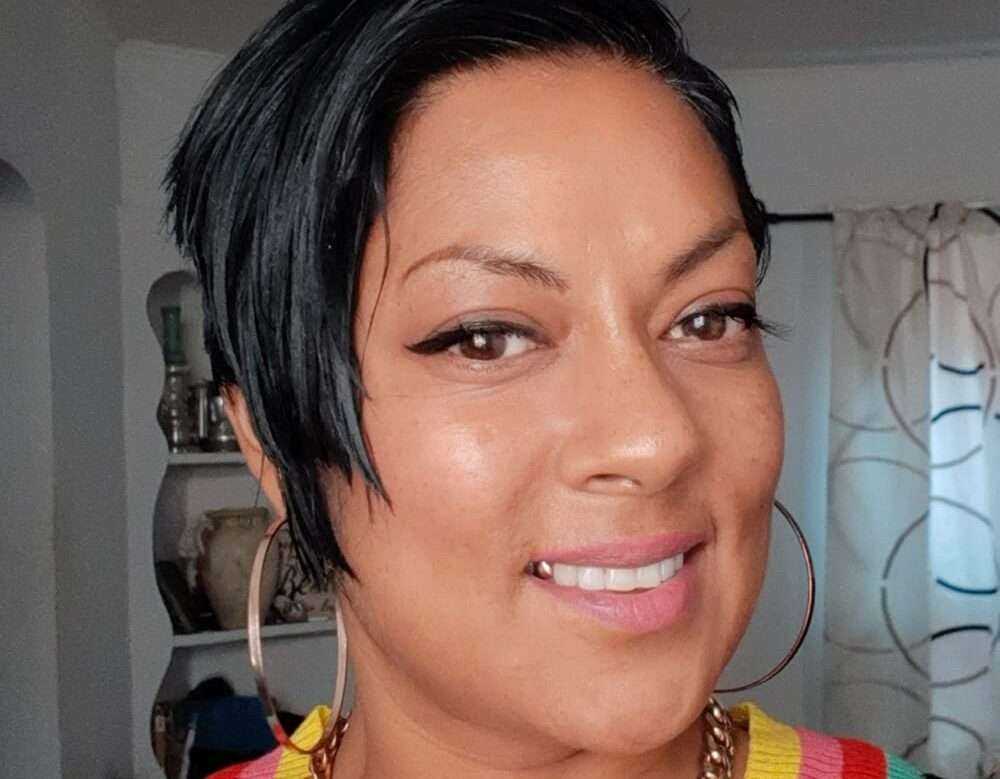
BY SIMONE J. SMITH
Hmmmmm!
I couldn’t believe what I was tasting. It was a Tuesday afternoon, and I had driven all the way to Hamilton to have a tasting session with a young woman who I had heard a lot of great things about.
I was making my way through my second gourmet doubles; the sauces were running down my fingers and dripping on the plate. It was so messy, but I didn’t care. These were the best doubles that I had ever tasted.
The best part about it; they were cannabis infused, and you couldn’t even tell. All I knew is that I couldn’t get the silly smile of my face. Good food will do that to anyone, or was it the cannabis?
Our woman empowered has been featured in: FLARE, New York Times, The Globe & Mail, and NOW Magazine. When I asked her to send me some articles that had featured her, she sent me a list of about twenty articles. Yes, she is popular because she is one of the few women of colour in Canada to run a cannabis-related business.
It has not been easy for her, especially in the industry that she has chosen to navigate. There have been women with strong ideas who are keen to start a business, but unfortunately these women need investors and funding, which is difficult to access, especially as a woman of colour. There are many barriers that keep people of colour out of the cannabis industry, and regardless of that she has pushed past these barriers and created a niche market of her own.
As the owner of The Limin Coconut, and the High Society Supper Club, this culinary scientist creates private dining experiences featuring micro-dosed dishes, infused butters, dressings for salads, sauces for mains, fudge and even cookies.
So, the question that comes to mind is, why is such a woman empowered not receiving the respect and support that she so obviously deserves? Is it because she is in the cannabis business? Is it the marketing, demographics, or are her products so stigmatized that our community finds them less appealing? I wanted some answers, so I took the drive to sit down and speak with the eccentric, and riveting energy known as Reena Rampersad.
After she had finished spoiling me to a three-course meal including an appetizer (plantain, and saltfish bakes), freshly cut up salad (with infused dressing), and her famous doubles, Reena sat down with me and shared her story.
“I was born in Toronto, East York actually,” she began. “Myself and my younger brother were born here. The rest of my family is from Trinidad. We were the only melinated family living on our street. We only knew this because everyone chose to tell us that.
A Jamaican family moved in, and we became family. As families we battled a lot of bullshit, you know racism, discrimination, things that are brushed under the rug here in Canada.
Our fathers shared the love of ganja. I was always around it. My grandmother used it for spiritual purposes. My dad and grandmother would make tea that I was not supposed to have, because obviously, I was way too young.
I remember spraining my ankle once, and my grandmother made some concoction (later I learned it was ganja), and I swear by the next day my leg was great.
There are parts of my childhood that I would like to forget, but I can’t because they have made me who I am today. My dad was arrested in 1978 for smoking a spliff on the porch. The police came and told my dad to stop smoking and my dad said no. They ripped it out his mouth, and my dad naturally defended himself. That was the first demonstration I saw, and in that moment, I realized how unjust the world was.
My dad had not done anything, but the reaction to him was so intense. I knew that something was wrong; society seemed to have a problem with people who partook in ganja, and that would be part of my repeated history.”
Reena then shared with me stories about how she saw the police accost family members and friends on a regular basis. This truly affected her.
“When you are constantly being harassed and targeted for a life choice, you begin to develop anxiety. It was hard.
For many years I didn’t smoke. I became a social worker in Detroit, and for almost ten years, I had to deal with being tested for drugs, so instead of dealing with the anxiety, I just stopped. It was when I was going through a separation from my first marriage, finding out that my dad and my brother had died, brought me home and back into what I knew, what I had grown up in. When I came home, I happened to find some of my dad’s weed, so I lit it up. It was truly a homecoming.”
As life would have it, Reena visited her doctor and he told her that she was suffering from depression. He suggested that she start to use anti-depressants, but she was completely against it. For her, smoking a spliff was her sanity.
“It changed my life. It put many things in perspective and trust me when I say it healed me physically. I have endometriosis and I used to take heavy medication. When I started smoking again, I didn’t have to take it as much. My endometriosis was manageable. There was such a relief. It was really profound.”
What really boils her blood is that people were making cannabis out to be this devil drug. They were tainting such a miracle plant.
“The prohibition was discriminatory. We brought this plant here, and then had it ripped away from us, and told that if we used it we would be chastised, and imprisoned. We started to believe that they were right. They criminalized marijuana, and we bought into it.
It was part of life. It was part of healing. They took it away from us. We have to remind ourselves that we have bought into the nonsense.”
Her mission and goal is to make the community aware of the place that Caribbean people have in this industry.
“It starts with our mind-set. I have so many family members and elders who look down at me, not recognizing that cannabis is the number one stock traded for a reason. We need to recognize that our limitations are because of our mind-set. We have to stop buying into the colonial thought. I always question people do you know why it was made illegal in the first place? I usually hear crickets after the question, and this is why I have to continue to educate.”
Reena advocates strongly for community by getting involved with organizations that support and lobby for policy change. She is the volunteer coordinator at Campaign for Cannabis Amnesty, where their main push was to convince the federal government to amend and pass Bill C-93, so that it gives expungements rather than pardons to Canadians convicted of simple possession marijuana.
“We wanted expungement, and instead they did expedited pardons. This means that the charge will stay on their record, and this may hinder some of their ability to do certain things,” Reena explains.
She also sits on the board for the Afro Caribbean Canadian Association Hamilton, as well as the Organja Society, a trade society that supports various products and services based businesses in the Global African Caribbean Indigenous and Diaspora communities.
“I am here to raise awareness of anti-black racism in the industry, as well as the inclusion and intersectional racism that myself and others have experienced. I want my community to have a seat at the table, and don’t worry, I will do the cooking.”
We, as humans are guaranteed certain things in life: stressors, taxes, bills and death are the first thoughts that pop to mind. It is not uncommon that many people find a hard time dealing with these daily life stressors, and at times will find themselves losing control over their lives. Simone Jennifer Smith’s great passion is using the gifts that have been given to her, to help educate her clients on how to live meaningful lives. The Hear to Help Team consists of powerfully motivated individuals, who like Simone, see that there is a need in this world; a need for real connection. As the founder and Director of Hear 2 Help, Simone leads a team that goes out into the community day to day, servicing families with their educational, legal and mental health needs.Her dedication shows in her Toronto Caribbean newspaper articles, and in her role as a host on the TCN TV Network.

You may like
-
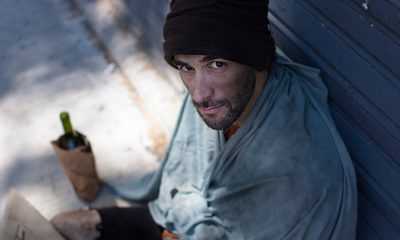

Before we allow more people into the country, shouldn’t we prioritize the well-being of our citizens first?
-


Ontario launches One Fare Program to increase accessibility and affordability of public transportation
-


Your silence on crimes against humanity automatically makes you an accomplice
-


Technological advancements: Is retail ready for A.I.?
-


Bridging the gap in awareness and knowledge for those not familiar with the Carnival experience
-


Under the radar; Manitoba principal apologizes for the distribution of sex education kits
Women Empowered
Chika Ofoha – Helping the community tap into their creativity
Published
1 month agoon
March 25, 2024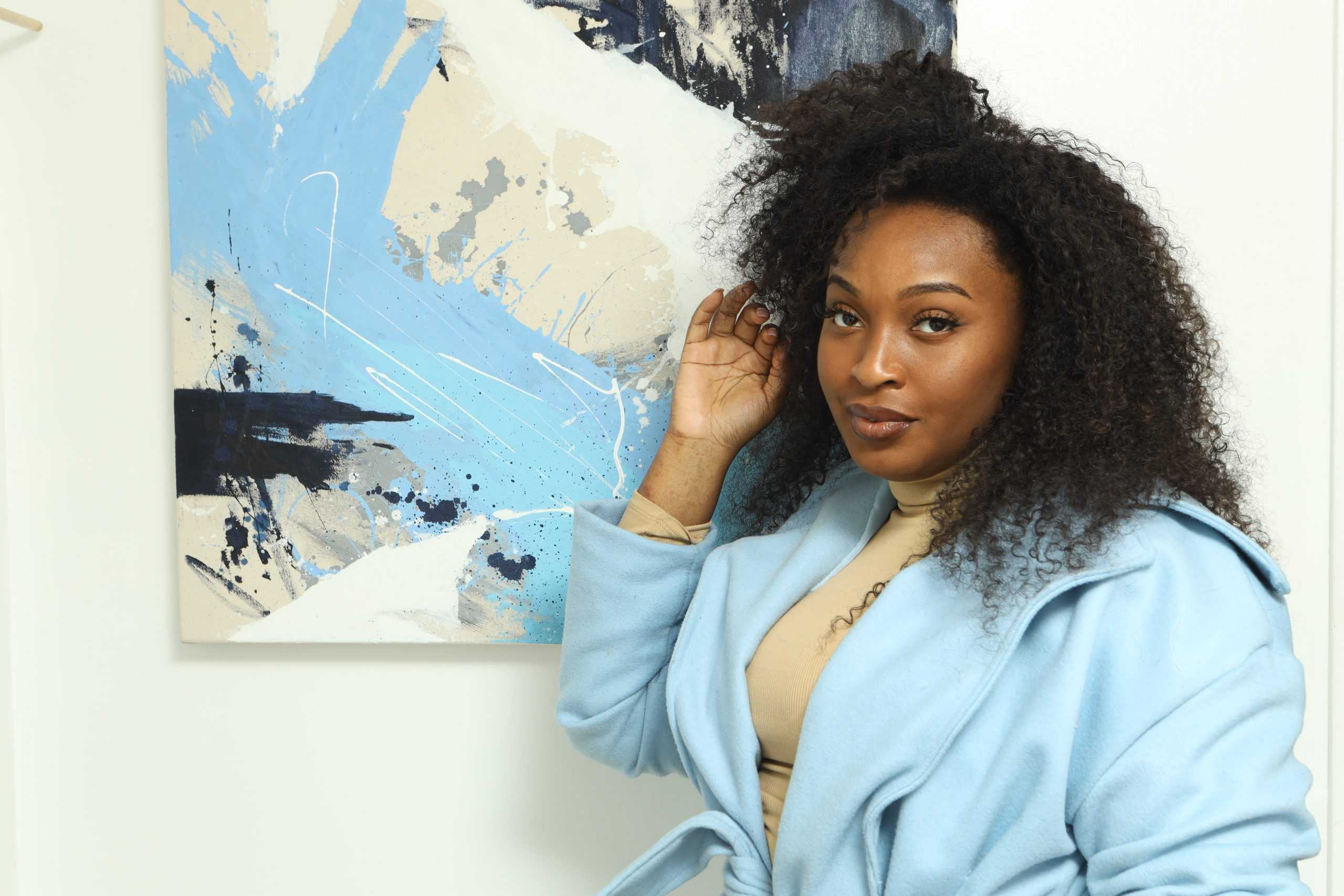
BY SIMONE J. SMITH
Whether it is photographs or works of art, images create a memory of people, places, and things that we hold with us forever. For Black women art has created a new space of recognition and has presented an opportunity to both celebrate and immortalize their contributions. It has created a new space of recognition.
Art does not show people what to do, or how to feel; great works of art create synergy between your senses, body, and mind. It can help you navigate your emotions, and this can spur thinking, engagement, and even action.
Most of us know the feeling of being moved by a work of art, whether it is: a song, a play, a poem, a novel, a painting, or a spatio-temporal experiment. Most recently I met a young woman, and upon seeing her work, I was transported to a new place that was, nevertheless, strongly rooted in a physical experience. I became aware of a feeling that I do not actively focus on. This transformative experience is what art is constantly seeking.
Quietly, Chika O has been experimenting with her artistic ability, finding ways to express herself, and help others express their innermost feelings. She specializes in curating inspirational and expressive paint events that enable those who are open to doing so tap into their creativity.
I was introduced to Chika O through a mutual friend of ours Nigel Birch; upon meeting her I knew that she was a phenomenon. It was on Friday, March 24th, 2023, that I saw the extent of her magic. She was the art curator at the LEGUP Secure your Wealth Symposium, and to see what she was able to do with the space, to turn a hotel common area into an art gallery; it was incredible. I decided right there and then that I wanted to share her talents with the world, so we sat down, and I went on an artistic journey with her.
“I went to school for the arts, but I didn’t do anything for myself,” Chika tells me. “I didn’t use my talent for anything. One day, I realized something had to change.
I was born in Mississauga, then my parents moved out to Newmarket. After my parents separated, myself, my four siblings, and my mother moved to Markham.
As a child, I was very vocal about what I wanted to do: be creative or play outside. All my gifts were focused on art. Give me paints, give me crayons, and give me a pencil crayon that is what I wanted. It was like this until I was 12 years old. School takes art seriously, so I used school as an outlet for my art.
They would spend more money on art supplies, and it allowed me to do more. There is basic art, but I wanted to be challenged. I wanted to learn techniques. From 10 to 12, that urge to learn more came up. My mom put me in art camp, and there I learned colour theory, sculpting, and how to work with clay.”
There was no denying; she was born an artist.
“I would win competitions at church because of the detail that I put into their work. There is so much that can be told by looking at a child’s art. You can learn so much from their world.”
She was very detailed explaining what art does for a child, and I knew that there was a story there.
“I was seven or eight when my parents separated. I learned a lot during that time. You never know what a child has to deal with. When I was younger, I was very attached to my dad. I copied everything he did. When my parents separated, the picture of my life was destroyed. When I had to shift to the new picture, I resented it. I didn’t like this new picture. Single mom, going to school, with the absence of my father; my world had revolved around him. I didn’t know what to revolve around anymore.
There was a gap, a hole. I woke up unhappy. Now I know that it was depression. My mom did the best she could. She would keep us connected to our community as much as possible, but it never filled the void.
It is only now that I am older; I realize why I focus on women in my art so much. It can be very difficult for us, especially when dealing with the opposite sex. Back then, I didn’t even have the words, so I put it in my art.”
Chika O takes her responsibility as an artist seriously; the idea that artists have responsibilities may come as a surprise to some – it is to help people not only get to know and understand something with their minds but also to feel it emotionally and physically. By doing this, art can mitigate the numbing effect created by our daily experiences. So, what she has done is find a way to bring art to the community in an interactive and engaging way.
“I curate events for organizations, and I also have fun with my paint nights. This gives me an opportunity to engage with individuals on another level. I want to inspire people to keep that creative muscle in their brains moving.
Art is what I do so that I do not self-inflict. How you process pain is unique for each person. When I am in my artistic space, I am reliving my pain, but in the way that heals me. When you don’t have the words to express how you feel, it can be really frustrating.
My paint nights are special to me. I am given complete creative control.”
Each month Chika holds a themed paint party; her next one is themed the Green Garden happening on Saturday, April 1st, 2023, from 7:30 PM 9:30 PM. Whether you are looking for a fun bonding activity for a group or a more personal experience, her events offer a perfect blend of social interaction and individual exploration. As your host, she is there every step of the way, guiding you towards creating a beautiful work of art that you can be proud of, and there is more…
I don’t want to give away too much about what Chika told me, but on May 6th, 2023, Toronto is going to be formally introduced to Chika O. A group of us will be working alongside Chika on a project that reflects the unique experiences of Black women. We will be fusing art and words to tell the story of a Black woman’s experience living in the diaspora. Her struggles, her joy, her pain, her celebrations; it will be a recognition of Black women all over the world.
“I have been working on things for a long time, and now is the right time to showcase what I have to the world. I am really excited about it, and what I will tell you is to start looking out for event details in the first week of April. For now, you can FOLLOW me on Instagram @paintwithchikaoh, or @artby.chikaoh.”
Women Empowered
Cassandra Geeta – Upholding justice and protecting the rights of individuals
Published
4 months agoon
December 19, 2023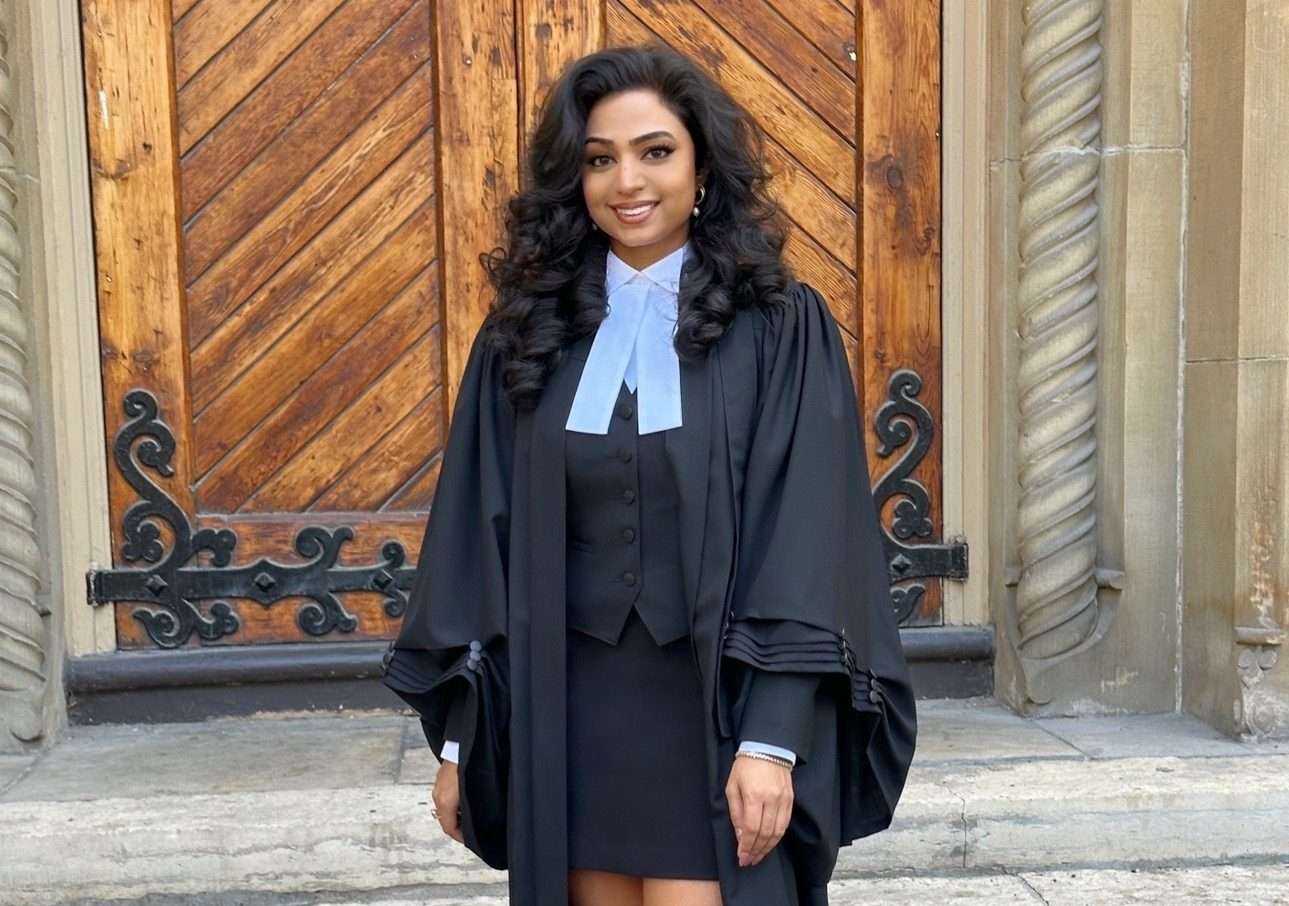
BY SIMONE J. SMITH
Women of colour have historically faced systemic barriers to entry and advancement in various professions, including the legal field. Discrimination, bias, and structural inequalities have limited their access to educational and professional opportunities.
The lack of women of colour in leadership positions within the legal industry has contributed to a cycle of underrepresentation. A lack of role models and mentors can make it more challenging for aspiring female professionals to envision a successful career in the field.
Luckily, our Woman Empowered smashed the ceiling on Tuesday, October 10th, 2023, by becoming one of the first Guyanese women to be called to the Ontario Bar.
She is a first generation Guyanese Canadian with roots in 58 villages of Berbice. Her mother emigrated from Guyana to the United States in the 70’s, before settling in Canada. She is an Associate Lawyer practicing exclusively in the area of criminal defense. She joined the team of Heller Hunter Azevedo after articling for a prestigious Toronto boutique criminal litigation firm. She has assisted with successfully representing clients at all levels of court in Ontario and Canada.
Prior to law school, our Woman Empowered graduated with distinction from the University of Toronto, where she obtained a double major in Criminology and Sociology, and Ethics, Society and Law. She also received her Masters of Arts from the University of Toronto in 2018.
She earned both a Canadian and an American Juris Doctor degree from the University of Windsor, and the University of Detroit Mercy in 2022. While in law school, she volunteered as a student attorney at the 36th District Court of Michigan’s Public Defender’s office and served as Co-President of the Windsor Chapter of the First-Generation Network. She was involved in the Criminal Law Association of Windsor, and Pro-Bono Students Canada, and was also the recipient of the 2021 Brian E. McIntyre, Q.C. Memorial Award in Criminal Justice.
It was such an honour to sit down with Cassandra Geeta, and dialogue about her journey to becoming a Criminal lawyer. What I learned is that this young woman is not only determined, relentless, and driven to represent her community the best way that she can.
“My mom immigrated from Guyana in her early teens, lived in the Bronx for a little, and then resided in Florida for a spell. Ultimately, she ended up in Canada. I was born in Brampton, Ontario, and we ended up settling in Mississauga. I had a difficult upbringing. When my mom moved to Canada, she moved because she had met my father. They ended up going through a difficult divorce, and my mom had no one here to support her. She was in a foreign land, facing a foreign justice system. All she had was her wits and courage to get through this.”
Thankfully, the universe sent them a guardian angel, a man named Vishnu Misir who was a lawyer from her mom’s extended family. “He helped my mom through some of her legal battles that she was fighting. He was one of the only family members who stood up for her and stood up for me. I can’t help but tell you that he has helped shape my destiny. He passed away a few years ago, and he didn’t get to see me where I am today. It is one of my biggest regrets to not get to see him now.
My mother and I are resilient. A lot of people don’t know what my mom and I have gotten through together. One aspect of my life that my mom enforced was school, ‘Take your education, take your book; when you have your education, no one can take it from you,’ she would tell me.
I started to take my education very seriously in high school, and I ended up at the University of Toronto. It was here in my third year that I was introduced to a Criminology course. Justice Davies taught that class. It was practical criminal work, and I thought I might be good at this.”
Her heart became set on criminal law, and she continued her education to get her Masters.
“I graduated in 2018, and things slowed down for a year. I had to take some time for myself. One of my first jobs was working at Mercedes Benz as a concierge, and all the while I was studying for school, and writing the LSAT.
My mom’s parents passed away four, or five years ago and it was devastating for the family. They were the eldest grandparents. These are two people: the matriarch and patriarch of our family, and they didn’t get to see me reach here.
When I received the acceptance at University of Windsor, I called my mom and burst into tears. Every day since then, it has seemed like one less burden was on my shoulders. I knew I was going to have a career; I wouldn’t be struggling anymore. I got into Law School, and I was determined. I have always viewed school as a great challenge, and if I put enough effort into it, I would be able to do well. I have always done well with school.
I applied to the Dual JD program. When my mom came to this country, she lost everything, but gained me. She stayed here because of me. Having an American law degree would allow me to take my mom back to where she would be happiest.
I didn’t feel intimidated, but I realized there was so much to learn. Law school solidified for me that Criminal Law was my path. My mom really wanted me to get into other types of law; I think that people think there is something seedy about criminal law.”
It is understandable why Cassandra’s mom was trying to steer her daughter in another direction. Criminal cases involve high stakes and can have a significant impact on individuals’ lives. The outcomes of cases may determine whether a person goes to jail, faces fines, or has their reputation tarnished.
The pressure to secure favorable outcomes for clients can be intense, and dealing with criminal cases can be emotionally draining. Criminal lawyers often work with clients who are facing serious charges and may be going through difficult circumstances. The emotional toll of handling such cases, especially those involving violent crimes or tragic events, can be challenging.
Cassandra knew that the legal system was complex, and that criminal lawyers must have a deep understanding of criminal law, court procedures, and legal precedents. She understood that building a successful criminal law practice would take time.
“My first year of law school was in person, and the second two years were virtual due to the pandemic. It was difficult; it felt like a long haul.
I became Co-President of the Windsor Chapter of the First-Generation Network. It was a student association geared towards First Generation legal professionals. People don’t understand how much work it takes, so to be able to connect with other students who understood the challenges was important.
I also served as Student Attorney at 36th District Court of Michigan. It was my first real stab at practical advocacy. It prepared me for my experiences after law school, especially when it came to engaging this vulnerable population.
What you take from your studies is different from person to person. Crime is not simplistic; it can be just one wrong decision along the road. I don’t judge my clients; when they turn to someone to help them, they don’t want to hear judgments on their actions. I am empathetic to them, and they need that.
My mom inspired me to be in service to people who might need help like she did. I want to be that helping hand to someone else. Everything is a reminder of where I came from.”
Despite these difficulties, Cassandra finds the work incredibly rewarding, as she now plays a crucial role in upholding justice and protecting the rights of individuals accused of crimes. The challenges in this field often come with the territory, and thankfully for our community, Cassandra is passionate about criminal law and justice. We are proud of you Cassandra; your work is needed.
Women Empowered
Amaya Athill Creating our space in the world of golf
Published
5 months agoon
November 30, 2023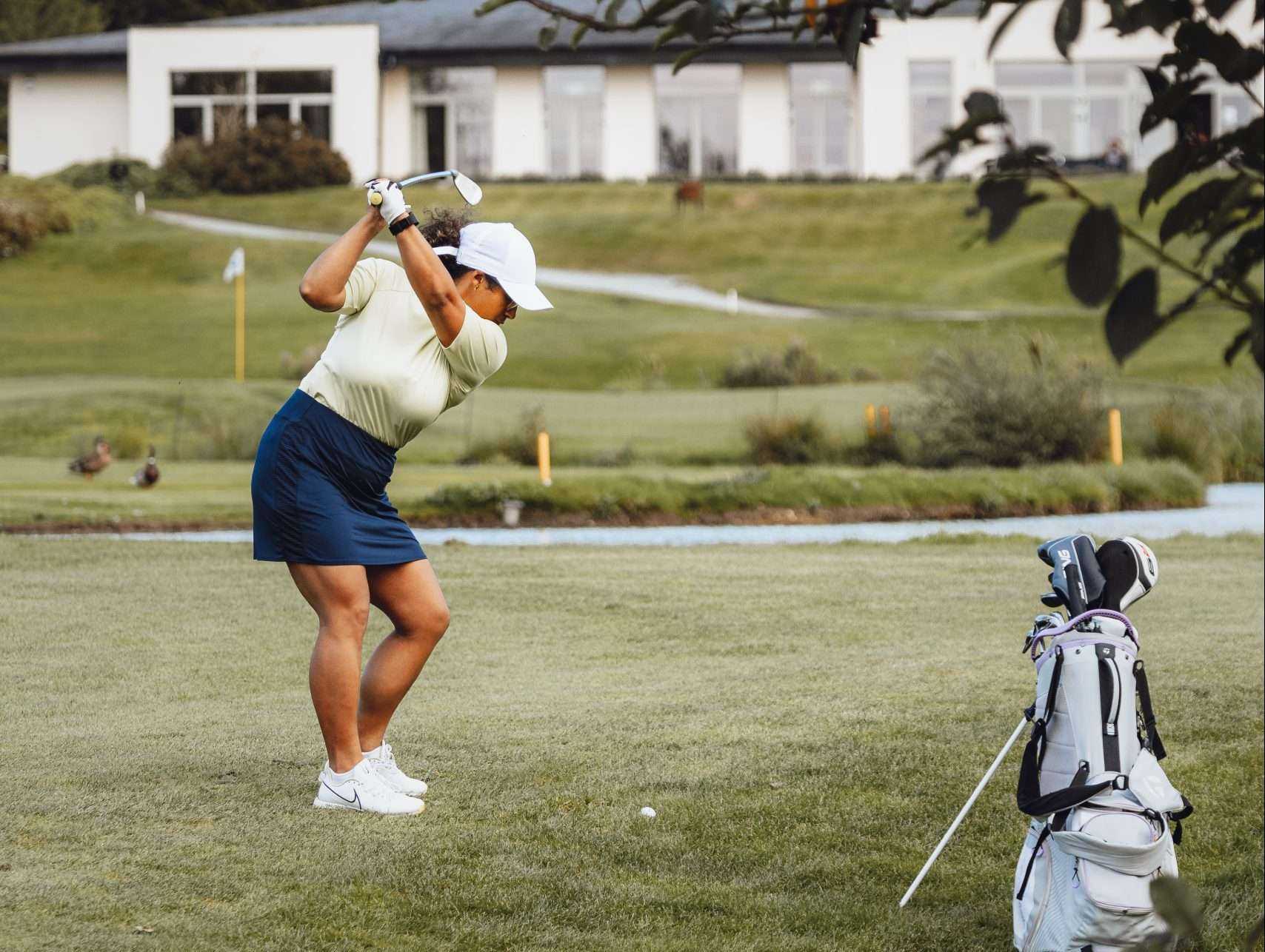
BY SIMONE J. SMITH
When you think about the game of golf, you think of it’s a game for White men. This is because the barrier of entry is high, and the techniques can typically only be sharpened with costly lessons over time. Although diversity within the sport is still questionable, more women are engaging in this activity and getting access to this secret world, and I am proud to say that one of our own is leading the pack.
Antiguan-born Canadian professional golfer Amaya Athill joined travel industry professionals for a day of fun on the links at this year’s Association of Canadian Travel Agencies (ACTA) Ontario Golf Tournament. On Thursday, July 13th, 2023, at Royal Ontario Golf Club in Milton.
With a 10-year background in law, our Woman Empowered is one of the few Black women to become a PGA professional in Canada. Since moving to Canada, a year ago, Athill has worked on a number of initiatives to make golf more inclusive. In her role as Manager, First Tee – Ontario with Golf Canada she works on creating opportunities for access to golf for children from historically underrepresented and marginalized communities.
She is a contributor for ScoreGolf Magazine where she highlights DEI initiatives in golf Canada-wide. She is also the founder of Black Women Golfers, whose mission is to ensure Black women – from beginners to more advanced golfers – have a space and community in the sport. I am going to share my interview with her, and I know you are going to find it inspiring.
When we choose our Woman Empowered features, we look for women who are not the norm, the ones who challenge societal thought, and pave their own trails regardless of what others think of them. They push boundaries, break glass ceilings, fail, recover, restart, and recalibrate. I couldn’t be prouder than to formally introduce to you our Woman Empowered, Amaya Athill.
“Before we even start Simone,” Amaya said excitedly. “I am a proud product of the golfing community in Antigua and pleased to represent my island in the golfing space in Canada. It’s an honor to have been invited by the Antigua and Barbuda Tourism Authority to support them in their mission to showcase all that Antigua and Barbuda has to offer to the travelling community. I really enjoyed myself.”
“So, Sis! You have to tell me how you got into golf. There is so much to your life resume, I am excited to hear it all. Where should we start?”
“Well, I was born and raised in Antigua, and I will admit. I travelled around a lot. I completed primary and high school in Antigua, and then went to the UK for University. At that time, my focus was school. I knew what I wanted to do, so I was determined. I started in law, 2011 and qualified as a barrister in the UK. I actually got to do six months of schooling in Jamaica and did the Antigua bar in 2012.
I got a Fulbright Scholarship to Georgetown University Centre in Washington D.C. and studied there for a while. I moved back to Antigua in 2013 and started a position at Lake & Kentish Attorneys at Law. Kenny Ketish was phenomenal. He mentored me in civil litigation and believe me it was very taxing. Working alongside Kenny was an incredible experience; I felt nurtured in my growth. I did a lot of human rights, and this was for six and a half years.
I got a fellowship opportunity for one year in 2017. Interestingly enough, it was in Montreal, Canada. The fellowship brought together 12 leaders, dumped us in a mansion, and we talked about politics, governance and excellence. It was a wonderful year, wonderful experience.”
Amaya’s travels did not stop there. She moved back to Antigua in the summer of 2018, and worked at the Legal Aid and Advice Centre from 2018 -2019. She then moved back to England and worked at the Commonwealth Secretariat working in international law.
“It was an in-house counsel role until 2022, and then I moved to Canada last year,” Amaya tells me.
“All right Amaya! Let’s get into the juicy parts; tell me all about your golf genesis.”
“I started playing golf when I was five years old. My dad introduced me to the game, and he put me in the junior golf academy. I was part of a very robust program. I met a lot of friends, and I really loved it. We were able to travel to compete in various golf tournaments across the Caribbean. When it came time to university, we did not have the tools needed to get scholarships, so I gave up golf for 10 years.
The pandemic hit when I was working in the UK. I was stuck in the apartment for a year. It was terrible, and my mental health took a hit, so I turned back to golf. I bought golf clubs off the rack, went to my local golf course and started playing golf again.
This time, it was different; in Antigua everyone looked like me in the golf industry, but in the UK, I was the only woman of color. I felt isolated and kinda intimidated. I had to question myself; why was I feeling like this? I connected with the African Caribbean Golf Association, and finally, once a month I had a community that I could golf with, play with, and I could network with.
I started to do a taster session (intro to golf session). Women would get to try golf, and I would offer a get into golf package where you would do six weeks with me to get into the sport. It was a really cool time; you can check out my Instagram page golf_interrupted. I started that in 2021.
I had applied for permanent residency after my experience in Montreal and was successful. During my process of moving to Canada, I was also in the process of applying (taking exams to transition my qualifications) for the bar in Canada.
“During that time, I applied for a manager position with First Tee-Ontario (Golf Canada). I saw this role and I thought, I am doing this already. I could do this as a side hustle. At that time, I was also kinda jaded when it came to my law career, so I contacted the director via LinkedIn. The message was very simple, ‘This is who I am. I am interested in this role, can we chat?’ He was very open to the idea and took a chance on me. I had a job to come to when I came to Canada, so I felt secure when my husband and I moved here last April.”
When she started her position, Amaya recognized a common theme. Once again, she was the only African Caribbean woman playing the sport.
“This is why I found the Canadian Caribbean Golf Association and started playing with them regularly. I spent the last year growing in my role. I love getting underrepresented children in the sport.”
Amaya was very transparent about her challenges. I have to say that I really appreciated that.
“I am a good golfer, not a great competitor. When you are competing, you can get in your head a lot. All of your flaws can show up on the golf course. It can break you down. When I decided to turn pro, I had to take a Playing Ability Test. You have to shoot below a certain score, and I failed miserably. Believe me when I say that it was a humbling experience.
During this experience, I noticed that every pro that there was to work with was either a white man, or a white woman. I took the test again in May and passed. I am one of the few African-Caribbean women who is in the PGA. I also passed the bar in June.”
“Oh gosh! Congratulations Amaya! That is a lot that you accomplished in a short amount of time.”
“Thank you so much Simone. What I am really proud of is doing more for the sport by founding Black Women Golfers. We started meeting up in the off season and practiced golf together. My question was, how do we get more women in the sport?
We had an intro to golf session where 18 women came and were taught the basics of golf. Then there is a range meet up once a month and we practice together. Then once a month we have actual games. It is very new, we just started. We partnered with Brown Girl Outside World on this initiative; golf has been added to their calendar.”
What a sensational woman; she is everything that we want for our Women Empowered Feature. Amaya, keep being a light in this dark world.

Before we allow more people into the country, shouldn’t we prioritize the well-being of our citizens first?

Ontario launches One Fare Program to increase accessibility and affordability of public transportation

Your silence on crimes against humanity automatically makes you an accomplice

Technological advancements: Is retail ready for A.I.?

Bridging the gap in awareness and knowledge for those not familiar with the Carnival experience

Under the radar; Manitoba principal apologizes for the distribution of sex education kits
YOGA: Surya Namaskar (Sun Salutation) for sufferers of hypertension or heart disease
Kemtek Development launches new exclusive gated community in Jamaica!

Ravi’s West Indian Grocery – Fresh Products Weekly Straight from Guyana!

Tourism-Related Live Streaming – The Manifold Ways it Can Create a Buzz for a Destination

ASA Meats & West Indian Groceries – Serving Freshness & Quality to the Community

Do You Have a 407 ETR Story?

Nadine Sutherland – A woman who continues to reinvent herself

Knia Singh – Light Up The Darkness

Spragga Benz – Light Up The Darkness

Kyle Kemper – Light Up The Darkness

David Icke – Light Up The Darkness

Ohio’s Bill 248 and Dr. Sherri Tenpenny’s compelling testimony
Trending
-

 Community News2 weeks ago
Community News2 weeks agoChemical hair straighteners are causing uterine cancer, fibroid tumors and infertility in women of colour
-

 Community News2 weeks ago
Community News2 weeks ago“Stop egging me on!” Companies are simply getting better at carefully wording things on their packaging
-

 Community News2 weeks ago
Community News2 weeks agoRichard Rooney gifts $5 million to the African Studies Centre and the Centre for Caribbean Studies at the University of Toronto
-
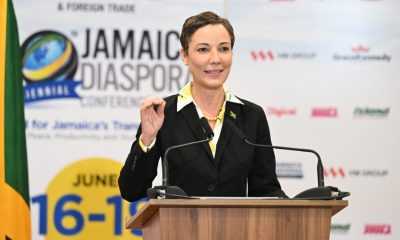
 Community News2 weeks ago
Community News2 weeks agoNot just a reunion; It’s a powerful catalyst for unity and growth. Welcome to the 10thBiennial Jamaica Diaspora Conference
-

 Community News2 weeks ago
Community News2 weeks agoSharp rise in the number of medically assisted deaths in Canada sparks concerns
-
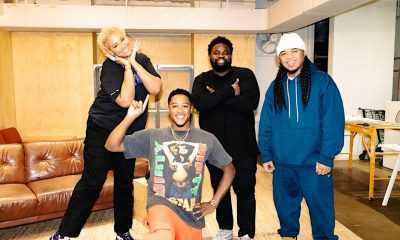
 Community News2 weeks ago
Community News2 weeks agoAmplifying authentic African narratives; the stars came out at the BSO Symposium
-

 Junior Contributors6 days ago
Junior Contributors6 days agoBeneath the waves: Unveiling the legacy of the transatlantic slave trade in the Bahamas
-
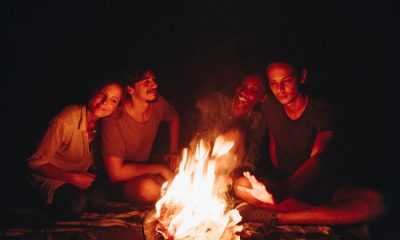
 The Poetic Word6 days ago
The Poetic Word6 days agoEverlasting Flames-to be Submitted




